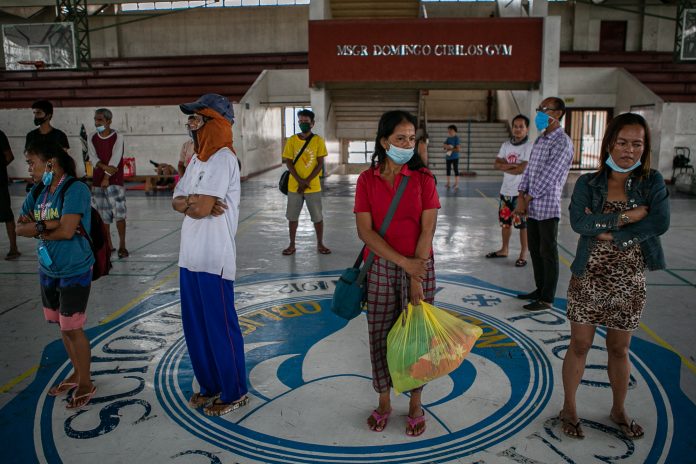To Mark McGreevy, members of the FAMVIN Homeless Alliance, and all the representatives of the Vincentian Family from different parts of the world, welcome to Adamson University. In the name of the Vincentian Family in the Philippines, we say in Filipino, “tuloy po kayo”, welcome to our home.
In ordinary Filipino homes of the poor, hospitality means giving you the best that we have, the best that we can offer, in order to make you feel at home.
They will tell you: “consider this house as your home for the rest of your stay”. Despite their poverty, they will offer you their best food for you to eat, or their best utensils for your use.
Even in one-bedroom houses, the parents will lend you their beds, and they will sleep somewhere else, just for you to have the best place to rest.
In a conference to the Daughters of Charity on January 1, 1644, St. Vincent shared to the Sisters how they welcome missionaries to St. Lazare.
He said: “When one of us returns from the country, each one in turn goes to meet him with a smiling face and thoughtfully brings him all that he needs. If it is necessary to bathe his legs to remove sensations of weariness, then his legs are bathed…”
You are all missionaries who have been laboring for the poor and the homeless all your lives. We might not be bathing your weary legs, but please feel welcome to our place. As any Filipino family would say: “This house is your home for the rest of your stay.”
Aside from our sessions, during your free time, you can also explore other spaces in the university. There is also a souvenir shop somewhere if you want items to bring home when you go back.
There is also the St. Vincent Parish Church, the shrine of the Miraculous Medal, on the other side of the road. You can go there for the Masses in the morning, or for a prayerful visit. Our students on campus are also willing to chat with you, if you want to get some information.
In some parts of our program, some of them will be here with us to entertain us with their talents. This is our little way of expressing our hospitality.
But throughout history, Adamson University has always been welcoming those who needed some home. In late 1930s, during the persecution of Jews in Europe, Adamson University gave a home to Jewish scientists and professors wanting to escape the incoming holocaust.
Their being assured of a teaching post in Adamson gave them to right to a visa to the Philippines and escape the Nazi concentration camps.
The St. Vincent building on the other side of the road was a home to diocesan seminarians, Jesuit scholastics and others who lived with Vincentian confreres during the war, when bombs were exploding all over.
But they were expelled by the Japanese forces when the latter forcibly occupied the building in 1945 — and violently killing 6 Vincentian priests, 4 lay brothers and 2 seminarians in the small creek in between these buildings.
They lined them up on the creek nearby and shot them all together. As I was reading this, I thought to myself, sometimes, martyrdom can be the consequence of our hospitality.
As we welcome you in this conference on slum dwellers, we do not only want to understand their plight from different contexts in the world. We also want to seek for solutions how to end homelessness in our times.
So that we do not only welcome the poor but also give the homeless the chance to welcome others in their own homes one day.
Father Daniel Franklin Pilario, C.M., is the President of Adamson University in Manila. He is a theologian, professor, and pastor of an urban poor community on the outskirts of the Philippine capital. He is also Vincentian Chair for Social Justice at St. John’s University in New York.
Fr. Pilario delivered this piece during the International Conference on Slum Dwellers at the Adamson University in Manila in January 2024.









